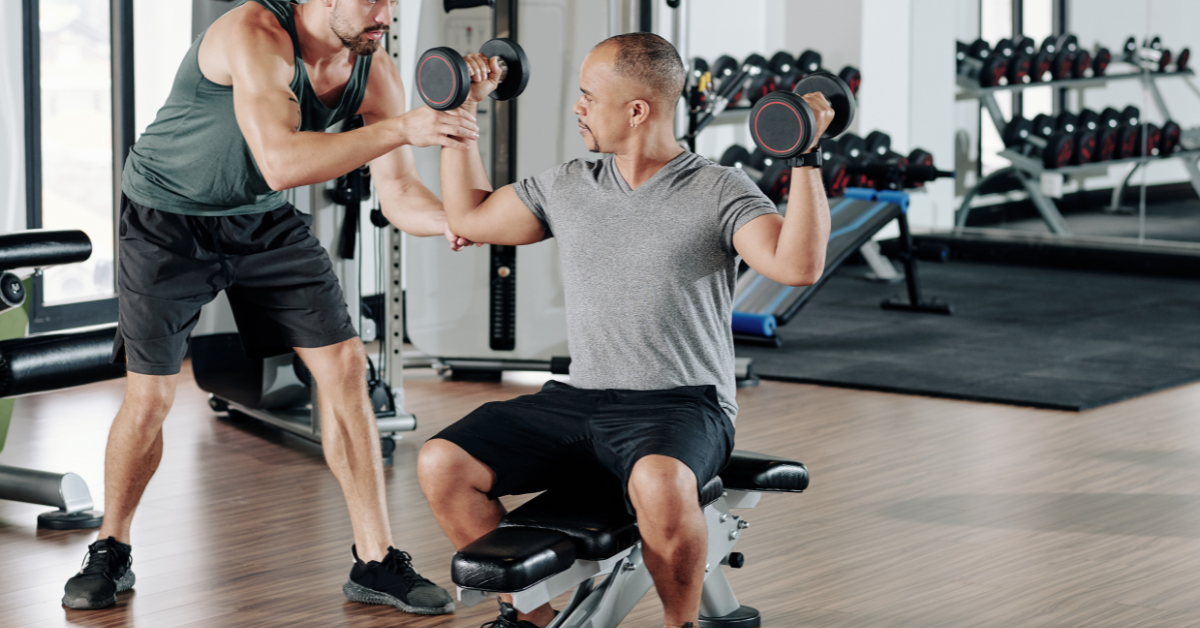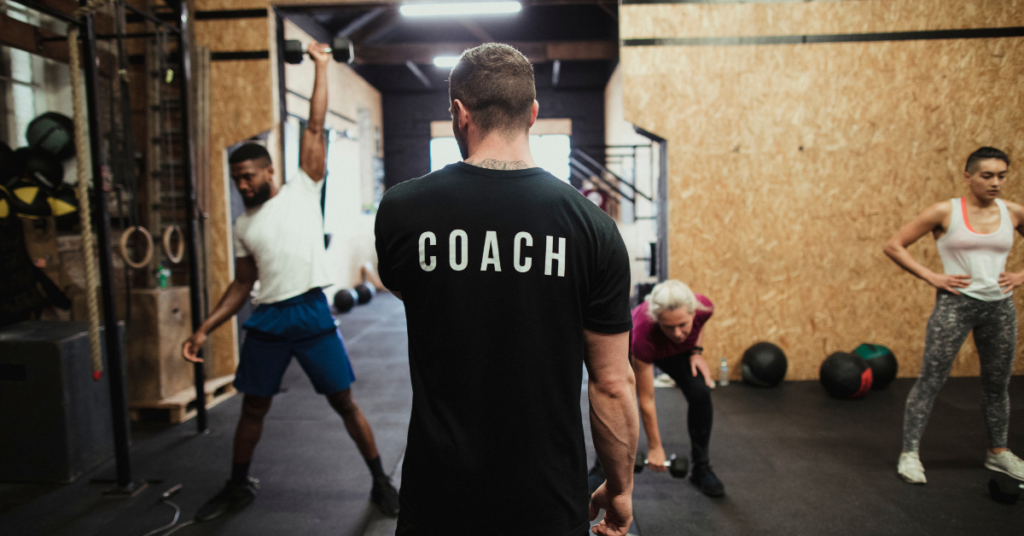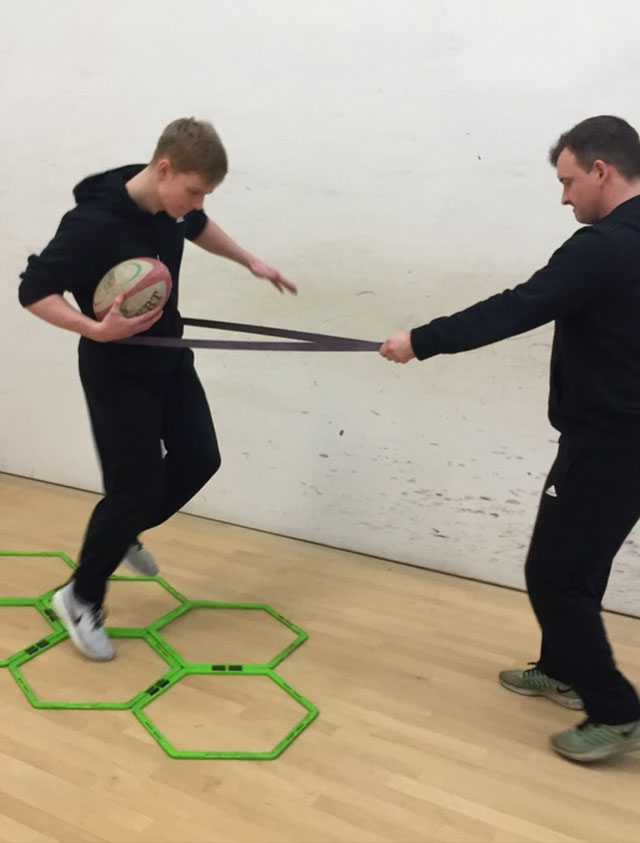Do you feel like you could really use a fitness coach to help you get back on track with your health and wellness goals? It’s a common desire as so many of us try to lose weight, gain muscle, and just generally become a healthier version of ourselves. But choosing the right fitness coach isn’t as easy as it sounds. You want to make sure they understand your individual needs and provide the guidance and motivation to help get you on the right path.
Fortunately, there are some important tips you can consider when choosing a fitness coach that will help make the process much easier. In this article, we will go over eight of them so you can make an educated decision that is right for you and your fitness goals. So let’s dive in and find out how to choose the right fitness coach!
Quick Recap
When choosing a fitness coach, it is important to look at their credentials and experience. Additionally, you should ask yourself if the coach’s personality and approach to training is the right fit for your needs and goals.

What to Look for in a Coach?
When looking for a fitness coach to help you reach your fitness goals, it’s important to know what qualities to look for. To start, it’s essential that your coach is reliable and has strong communication skills. A quality coach will take the time to answer questions and keep you up-to-date with progress and changes. You also want to make sure your coach is motivating, challenging and inspiring. After all, if the coach isn’t motivating you, it will be much harder to stick with your programme and achieve success.
It may also be helpful to find someone who shares similar philosophies about health and wellness. For instance, you might prefer a coach who focuses on adaptable workouts that can be modified easily in case of injury or other limitations. If you are more focused on diet, you may want to find a coach who emphasises nutrition as an integral part of the training experience. Ultimately it’s important to find a coach whose philosophies match yours so that you can work together efficiently.
At the same time, you don’t want to overlook other factors such as experience and qualifications. It’s possible that an inexperienced or unqualified coach might be knowledgeable in their craft; however they may not be adequately equipped to cope with challenging situations that experienced coaches learn how to manage through years of practice. As such, when assessing potential coaches, take into account the amount of experience they have in related practices.
Weighing all these variables should give you a good idea of what kind of trainer would suit you best which brings us to the next point: experience and knowledge. An experienced trainer with knowledge about nutrition and exercise science can play an instrumental role in helping you reach your goals faster than going it alone.
- A study published in The Physician and Sportsmedicine in 2016 found that quality of instruction was the key factor to clients’ experience being highly satisfactory.
- According to the National Academy of Sports Medicine, 65% of personal trainers / fitness coaches hold one or more certifications related to health and fitness.
- In 2019, it was estimated that approximately 29 million people reported having used a personal trainer / fitness coach within the last year in the US alone.
Experience and Knowledge
When searching for the right fitness coach, it is essential to consider their experience and knowledge. While it is often assumed that experienced coaches have more knowledge, this doesn’t always hold true. Some newer coaches may have far more knowledge due to how extensively they trained and studied before entering the profession.
However, regardless of how knowledgeable a new coach is, they don’t typically have the experience needed to apply that knowledge to real-life situations. Experience not only helps coaches understand their clients better but also know what strategies are most effective in helping them reach their goals. Therefore, comparing the qualifications, certifications, and specialised areas of experience for each potential coach is advisable before making a final decision.
It is also important to verify that your chosen coach maintains current certifications and continues educating themselves on best practices within the industry. Fitness does not remain stagnant or unchanged over time; rather, as research and technology advances, so too should a certified fitness coach’s knowledge and skills in order to provide the most up-to-date information for their clients.
By thoroughly researching each potential coach and making these comparisons, you can ensure that the person you choose brings the right mix of experience, knowledge, and education needed to help you reach your health and fitness goals. With an informed decision on which coach to select, you can move forward with confidence as you begin your journey towards improved health and wellbeing.
Now that you have determined what qualities to look for in a fitness coach, exploring the different types of coaching available can help you gain a better understanding of how to use those qualifications to select the right trainer for you.
Types of Coaches Available
When considering a fitness coach for your appropriate goals, it is important to understand the different types of coaches available. For those looking for more general health and wellbeing advice, a nutrition coach may be beneficial. Nutrition coaches specialise in educating people on proper fuel for their bodies, as well as meal planning and prepping. Depending on the plan you choose, nutrition coaching can manage individual eating habits to help achieve desired results. On the other hand, if you’re serious about developing your physical capabilities, strength and conditioning coaching may be the route to go down. Here, specialised exercise programmes are created to address your specific needs and improve overall performance.
However, when searching for either of these coaches, it is important to take into account the qualifications they possess. Doing so will ensure that a coach is not relying solely on experience but has knowledge backed up by relevant qualifications. This will also give you an understanding of how experienced they actually are and if they have studied any type of foundational fitness programme or accredited certification course.
At the end of the day, ensuring you’re comfortable with your choice of coach should be priority number one; it is essential to find someone who challenges you while being encouraging and motivating simultaneously. When this is taken into consideration alongside the breadth of qualifications each potential coach holds, you can feel safer knowing that your health and wellness is in the right hands. From here, it’s time to consider what you need from certified personal trainers for improving physical wellbeing and achieving better health outcomes.
Certified Personal Trainers
When it comes to choosing your fitness coach, certified personal trainers are a popular choice. One of the advantages of working with a certified personal trainer is that they are held to a high industry standard for safety and health. Certified personal trainers have extensive knowledge in exercise science and equipment safety. They must pass a test provided by an accredited organisation and be conversant in topics such as anatomy, physiology, nutrition and fitness assessment.
Furthermore, certified personal trainers can provide individuals with one-on-one attention during their workout. A good coach will tailor your workout programme to meet your specific needs and goals, ensuring that you get the best possible results from your programme.
Some may argue against certification claiming that it is not necessary for effective training. However, research supports the fact that having a certified trainer is beneficial as they have comprehensive knowledge of safety protocols, making sure that you are doing exercises safely and efficiently. For instance, a recent study by the American Council on Exercise (ACE) found that being trained by a qualified personal trainer improved engagement and motivation among participants while reducing the risk of injuries significantly.
By selecting a certified professional, you can be sure that you are investing in someone who understands the importance of safety and will be able to design a programme tailored to your individual needs. With knowledge of proper form and technique, qualified personal trainers can help improve both performance and injury prevention.
In addition to considering certified professionals, it’s also important to think about what type of coach or programme best suits your needs – from a qualified specialist to an online programme – so you can find the right fit for your lifestyle.
With all these tips in mind, equip yourself with the information needed to make an informed decision about which fitness coach or programme is right for you.

How Do You Choose the Right Programme?
Once the initial steps of interviewing and assessing certified personal trainers have been completed, the next stage must focus on choosing a programme. Many coaches and trainers offer numerous packages and programmes, such as boot camp sessions, one-on-one training, virtual training or group classes, so it is important to identify which type of training will be most suitable for an individual’s needs and preferences. One argument suggests that playing an active role in their own health journey, individuals should take ownership of their physical wellness by tailoring their workout plan to personalised goals. As such, personalised programmes and plans which require planning, tracking and accountability are likely to yield better results in the long term. On the other hand, others may argue that having structure and consistency through joining group fitness classes or having access to a personal trainer might provide more motivation than having to create one’s own plan. Additionally, having access to professional knowledge also helps with minimising potential injury due to incorrect form or trying exercises beyond a person’s capabilities.
No matter what side of the argument they support, all individuals should carefully consider their preferred style of exercise whilst understanding the pros and cons of each option before making a decision. Knowledgeable support from a coach or trainer can often help in this process by providing practical advice regarding expected results and outcomes. With this information in hand, individuals are now better equipped to make an informed choice when selecting a fitness programme.
Now that we have gone through the essential tips to finding an ideal coach and picking the right programme for oneself, we will transition into considering ways of finding real customer reviews about the service being provided by recommended professionals.
Key Points to Know
- It is important to assess the different types of programmes offered by certified personal trainers, such as boot camp sessions, one-on-one training, virtual training or group classes, in order to choose the one that best suits a person’s goals and needs.
2. Customers should take into account the pros and cons of each type of programme before making their decision and receive advice from knowledgeable coaches and trainers on expected results and outcomes.
3. To make sure that an individual’s choice of service is the right one for them, real customer reviews about the service provided by recommended professionals should be taken into account.
Recommendations and Reviews
When selecting a fitness coach, it is important to keep recommendations and reviews in mind. Seeking the advice of friends and family who have worked with a personal trainer can be a great way to gain insight on their experience working with the particular coach. Moreover, it is beneficial to read reviews from past clients of the coach. Anticipate reading comments about their professionalism, the quality of the training and their ability to work one-on-one with a client.
On the other hand, although recommendations and reviews often provide valuable feedback related to experience others had within their own fitness journey, they should not be taken as absolute truths. It is important to remember that everyone has different expectations when engaging in a fitness programme and it is normal for people to feel differently regarding the effectiveness of the trainer or programme they are engaging in. As such, while reviews and recommendations can provide helpful context when considering a fitness coach, they should not be taken at face value.
In addition to reviews and recommendations, potential clients should also use their research skills to gather information pertaining to the qualifications and certifications of their prospective fitness coach. For example, credible coaches may belong to industry associations or organisations that specialise in certifying exercise professionals. A quick internet search for local organisations may yield significant results which can be cross-referenced through websites such as “Best Personal Trainers” or “Gym Finder” which include ratings from past and current clients based on reviews submitted regarding various fitness professionals.
Common Questions and Answers
How can I find a reliable and reputable fitness coach?
Finding a reliable and reputable fitness coach can be an intimidating task. The best way to find the right coach for you is to do research. Start by asking for referrals from friends, family, or colleagues who have had positive experiences with a coach in the past. Then check out reviews online from independent sources such as fitness message boards and forums. Lastly, take some time to reach out to potential coaches directly and ask them questions to get a better sense of how they operate, their experience, and their specialties. When considering any potential coach, make sure they have certification and qualifications relevant to your goals and needs. Additionally, consider whether your coach will help create a personalised exercise plan tailored specifically to you. Finally, ensure that your coach’s approach to fitness is successful and sustainable over the long-term. Taking the time upfront to find a reliable and reputable fitness coach ultimately pays off by saving you time and money in the long run.
What experience or qualifications should a fitness coach have?
A fitness coach should have up to date qualifications, such as a bachelor’s or master’s degree in exercise physiology or kinesiology, to ensure that they have the scientific knowledge and practical experience to develop safe and effective programmes. They should also be certified by an organisation such as the National Strength and Conditioning Association (NSCA) or American College of Sports Medicine (ACSM), which provides additional assurance that they are knowledgeable in their field.
In addition to qualifications, it is important for a fitness coach to have experience in working with different client populations with various needs. While certifications provide some indication of a coach’s expertise, it is best when coaches have real-world experience successfully helping individuals achieve their specific goals. Look for trainers who have relevant experience coaching individuals similar to you, such as those with the same physical condition or goals.
What qualities should I look for in a fitness coach?
When choosing a fitness coach, you should consider qualities like professionalism, experience, knowledge, and rapport.
Professionalism is important for several reasons. An experienced coach will have clear guidelines about their services and how often they’ll meet with you; they should honour their commitments and keep professional boundaries at all times.
Experience is also critical when selecting a fitness coach. Ask your potential coach how long they’ve been providing coaching services and what kind of education or qualifications they possess. Having an experienced coach with advanced certifications helps ensure that they have the proper skills to help you reach your goals.
A fitness coach’s knowledge of nutrition and exercise science is essential. They should be well-versed in different forms of exercise as well as nutrition strategies to support your health goals. Find out if your prospective coach has taken specialised courses in areas related to their profession.
Finally, rapport is critical for effective coaching. You need to select someone who you can trust and who you believe understands your fitness goals. Ensure that your fitness coach shows enthusiasm for helping you succeed and fosters an overall sense of collaboration between the two of you throughout the coaching process.





